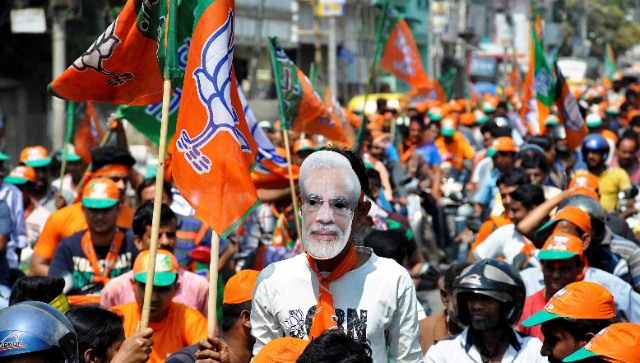After Assam, the BJP secured another consecutive victory in Tripura, another significant northeastern state. Against the backdrop of the leadership issue, organisational factionalism and consequent anti-incumbency, the journey for the incumbent party was extremely tough. The new tribal party, Tipra Motha had cornered the majority of the tribals on its side. That made, BJP’s tribal party ally, the IPFT, irrelevant, which in turn, left the saffron party to contest the battle on its own. Also, the CPM and the Congress entered into a pre-poll alliance and employed a high-end anti-incumbency pitch among the Bengali voters who constitute the electoral majority in the state. And yet, the BJP won. There are five takeaways from today’s victory for the BJP in Tripura. One, there is a new wave of politics in the North East wherein the younger generation are aspirational. Hence, they desire more integration and mainstreaming. That explains, why the BJP is rewarded with another electoral victory despite their average economic performance. The party is seen as a conduit to materialise the collective sentiment. In sum, the periphery is now craving mainstreaming at par with the mainland. It also marks a shift in the hitherto existing framing of northeastern states as the underbelly of India. It won’t be an exaggeration to say that the periphery is the new mainstream in today’s India. Two, the BJP victory is an outcome of both, people’s economic aspirations and cultural quest. In our fieldwork, we got an unequivocal trend of the majority of people recognizing a paradigm shift in the political culture of the state. Compared to the Left rule when people’s everyday lives were under complete control of the party and reward and punishment were ensured as per people’s political affiliations, BJP’s five-year tenure has brought a near complete loosening of the party’s control over society. The suffocating and compulsory culture of forced participation in political processions (Michil) and donations (Chanda) is a matter of the past. Today, people feel free to articulate anti-incumbent narratives without fearing a backlash from the ruling party. Thus, BJP’s victory in Tripura signifies the popular desire and celebration on part of the people to reject the old party-society model and continue the free-society model as is perceived on the ground. Three, the electoral debut of the local tribal party, Tipra Motha, led by Maharaja Pradyot Manikya Deb Barma, in the state Assembly Election reveals a subtext to the electoral narrative. While BJP is the new dominant party in the state, at societal level, the ethnic polarisation has translated into the political and electoral arena for the first time. While the election was peaceful, the existing ethnic polarisation along the political line may translate into social tension if the tribal question is not given adequate attention, BJP’s victory on their own, notwithstanding. The BJP needs to engage the Tipra Motha and its leader more sincerely to ensure long-term social peace in the otherwise troubled state. Four, the loss of CPM despite a relatively conducive ambience on account of existing anti-incumbency and the ruling party’s factionalism paints a gloomy picture of their future prospect in the state. The loss is worrisome even more as they contested the election in alliance with the Congress which gave them a perception advantage of being a serious player. Yet they lost. This signifies that while the CPM desires to project itself as an alternative, the people on the ground neither see them as neither credible nor relatable alternatives. This state of the Left party is all the more intense among the new generation who feel alienated by the average ageing profile of the party. Further, the CPM-Congress alliance failure in Tripura needs to be seen in the backdrop of another similar experiment in Bengal where both parties contested the election together in the 2016 Assembly Election and failed to oust the Trinamool Congress. This also clouds the opposition’s enthusiasm for a joint front at the state level on the plank of anti-BJP-ism in the 2024 general election. Lastly, the state of Congress, particularly in Tripura and North East, in general, is dilapidated. It is failing consistently in its existential battle in the region wherein it used to enjoy a dominant position until recently. More significantly, the verdict in three northeastern states also reveals the zero electoral impact of the much-touted Bharat Jodo Yatra on the electoral prospect of the Congress even in the states wherein they still have some regional leaders with ground connectivity left. It would be a matter of time before these leaders will start deserting the grand old party and join other forums. In sum, the electoral outcome in the northeastern states marks the metamorphosis of the peripheries as the new mainstream. That way, the electoral story from these states is beyond elections. Manisha Majumdar and Sajjan Kumar are associated with PRACCIS, a Delhi-based research institution. Read all the Latest News , Trending News , Cricket News , Bollywood News , India News and Entertainment News here. Follow us on Facebook, Twitter and Instagram.
The electoral outcome in the northeastern states marks the metamorphosis of the peripheries as the new mainstream
Advertisement
End of Article


)

)
)
)
)
)
)
)
)



